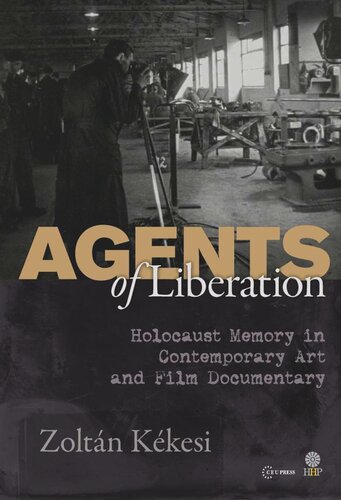

Most ebook files are in PDF format, so you can easily read them using various software such as Foxit Reader or directly on the Google Chrome browser.
Some ebook files are released by publishers in other formats such as .awz, .mobi, .epub, .fb2, etc. You may need to install specific software to read these formats on mobile/PC, such as Calibre.
Please read the tutorial at this link: https://ebookbell.com/faq
We offer FREE conversion to the popular formats you request; however, this may take some time. Therefore, right after payment, please email us, and we will try to provide the service as quickly as possible.
For some exceptional file formats or broken links (if any), please refrain from opening any disputes. Instead, email us first, and we will try to assist within a maximum of 6 hours.
EbookBell Team

0.0
0 reviewsThe book explores representations of the Holocaust in contemporary art practices. Through carefully selected art projects, the author illuminates the specific historical, cultural, and political circumstances that influence the way we speak—or do not speak—about the Holocaust. The book's international focus brings into view film projects made by key artists reflecting critically upon forms of Holocaust memory in a variety of geographical contexts. Kékesi connects the ethical implications of the memory of the Holocaust with a critical analysis of contemporary societies, focusing upon artists who are deeply engaged in doing both of the above within three regions: Eastern Europe (especially Poland), Germany, and Israel. The case studies apply current methods of contemporary art theory, unfolding their implications in terms of memory politics and social critique.